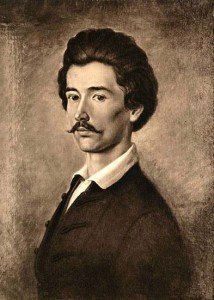The biggest yet unsolved Hungarian historical mystery: how did Sándor Petőfi die?
Change language:
Petőfi is undoubtedly the most famous Hungarian poet, his works have been translated on most foreign languages, but we do not know how, where and exactly when he died. Can we resolve this mistery?
Hard to tell
This is why his offsprings started a petition because even they do not agree on the questions mentioned above – szeretlekmagyarorszag.hu reported. In fact, today Petőfi has approximately 200 descendants everywhere in the world, and each of them would like to know what happened to the poet after the battle of Segesvár, on July 31 1849.
What seems to be sure is that one of the Hungarian generals, Jozef Bem and his army of 6,000 strong met with the Russian Imperial Army of 12,000 near Segesvár (Sighișoara, Schäßburg) on that day. Petőfi, who served as messenger under Bem, was around the general without a horse or any weapons until the afternoon when he received orders to leave the battlefield. He was seen after the final charge of the Russian forces began but
his body was never found.
Therefore, in Hungary, there is a saying: “Eltűnt, mint Petőfi a ködben” (“Disappeared, like Petőfi in the fog“).

Some say that Petőfi was killed by Cossacks who – after the defeat – started to chase the Hungarian army. According to the Viennese archives, an Austrian major named Heydte, and a Russian general, Lüders, testified after the battle that the poet died because captive Hungarian officers identified a low-statured, bearded man stabbed in the chest as Petőfi.
Alternative versions
In contrast, Franz Fiedler, an intelligence officer of Hungarian general Bem said that he saw through his binoculars when two Cossack horsemen caught up with the poet and wounded him badly. Afterwards, he sent two of his men to bring the still living Petőfi to a house in Segesvár from where





